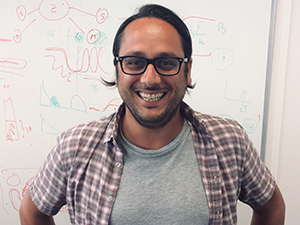Scientists have discovered clues which may explain why some treatments stop working for people with bowel cancer – causing around 16,800 deaths in the UK every year.
The study, led by researchers at The Institute of Cancer Research, London, could help clinicians make better use of current treatments and develop more targeted therapies for bowel cancer in the future.
In findings published in the journal Cancer Research, the team studied bowel cancer organoids, tiny lab-grown versions of human organs designed to model how cancer cells behave in our bodies.
Building up a picture of resistance
The researchers looked at two sets of bowel cancer organoids with different genetic makeups and how they responded to four cancer treatments given in different sequences over 45-day periods. This helped build up a detailed picture of their evolution and behaviour over time.
The study found that cancer cells can develop a “memory”, through switching on and off certain processes in the cell, known as “epigenetic changes”. Cells can “remember” the form and appearance they need to adopt to survive harsh conditions, such as being bombarded by cancer drugs. The resulting survival mode “memories” are then passed on when cancer cells grow and divide, resulting in a cluster of drug-resistant cancer cells.
‘Cancer cells have the ability to adapt to their surroundings’
Dr Erica Oliveira, Senior Scientific Officer at The Institute of Cancer Research, London, and one of the lead authors of the paper, said:
“We have known for some time now that drug resistance isn’t simply caused by further mutations in the DNA of cancer cells.
Our work shows the additional role epigenetic changes play in giving cancer cells the ability to adapt to their surroundings, unfortunately resulting in certain cancer treatments becoming less effective over time.
We look forward to further studying these processes to see if we can target them directly as a strategy for beating bowel cancer.”
The work was funded by Cancer Research UK and the Italian Association for Cancer Research (AIRC) with additional support from the Wellcome Trust, the National Institute for Health Research Biomedical Research Centre at The Royal Marsden NHS Foundation Trust and The Institute of Cancer Research (ICR), and Imperial College London.
Designing more targeted treatments
Cancer is a complex disease. Existing treatments don’t necessarily work for everyone, and all cancers are at risk of evolving and becoming resistant to treatments over time. This, in part, is down to changes in the genetic instructions inside the DNA of every cell.
Increasingly, scientists are building a better understanding of the other processes involved in driving drug resistance. The findings from this multi-year research project give us one of the most detailed studies to date about how drug resistance can develop in bowel cancer.
Professor Andrea Sottoriva, Professor of Cancer Genomics and Evolution, Head of the Centre for Computational Biology at Human Technopole, and formerly The Institute of Cancer Research, London, said:
“Our findings could potentially be used to inform how we treat bowel cancer in a more targeted way. If we can test a sample from a patient with bowel cancer and confirm their cancer cells have survival 'memories' and are at risk of developing resistance, we could potentially change the order that current drugs are given, or develop new therapies designed to make cancer cells ‘forget’ how to survive.”
Dr Iain Foulkes, Executive Director of Research and Innovation at Cancer Research UK, , said:
“For over 100 years, our scientists have been working to beat bowel cancer. We were pleased to fund this work looking at how bowel cancer cells change over time in response to different cancer therapies.
Discoveries like this could potentially help us anticipate how a person’s cancer might evolve, allowing us to design more targeted ways of treating the disease, whether that’s making use of current drugs or designing new ones.”
World-leading research
Finding new and improved treatments for cancer is one of Cancer Research UK’s top priorities. Cancer Research UK and partners recently announced £5.5m funding towards the CRC-STARS research consortium, a world-leading international research team tasked with making personalised medicine a reality for people with bowel cancer, which includes some of the researchers involved in this study.
Discovery scientists across the UK have been improving understanding of the biology of cancer, uncovering potential new targets for treatments and helping to understand why some treatments don’t work, while clinical researchers have been testing these new treatments in people with cancer and pushing forward their journey into the clinic.
The paper, entitled “Epigenetic heritability of cell plasticity drives cancer drug resistance through one-to-many genotype to phenotype paradigm”, was co-authored by Dr Erica Oliveira, Salvatore Milite and Dr Javier Fernandez-Mateos.
.tmb-propic-md.jpg?Culture=en&sfvrsn=c25d2b2f_9)
 .
.
